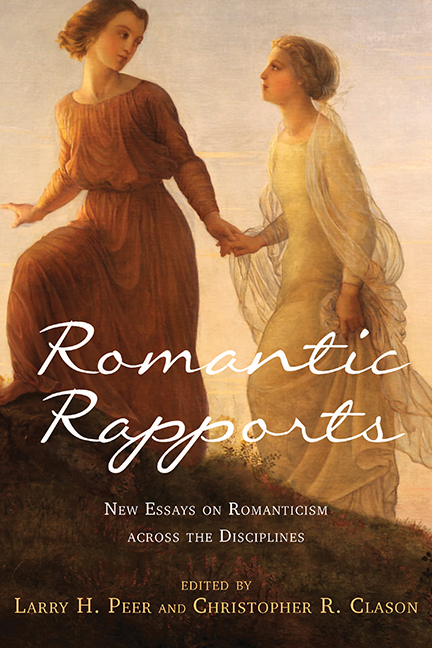Book contents
- Frontmatter
- Dedication
- Contents
- Acknowledgments
- Introduction: The Polyvalence of Romanticism
- Part I Romanticism and the Literatures
- 1 Werther and Harold: Rapport and Difference in the Literary Articulation of the Romantic Subject
- 2 Balzac and the French New Wave: A Problematic but Enticing Relationship
- 3 Romantic Relations and Constructive Affinities: Notions of Family in Kater Murr
- 4 Françoise's Way and Bloch's Way: Two Paths of French Romanticism in Proust's À la recherche
- Part II Romanticism, Music, and the Visual Arts
- Part III Romanticism and Science, Technology, Philosophy
- Notes on the Contributors
- Index
2 - Balzac and the French New Wave: A Problematic but Enticing Relationship
from Part I - Romanticism and the Literatures
Published online by Cambridge University Press: 30 August 2017
- Frontmatter
- Dedication
- Contents
- Acknowledgments
- Introduction: The Polyvalence of Romanticism
- Part I Romanticism and the Literatures
- 1 Werther and Harold: Rapport and Difference in the Literary Articulation of the Romantic Subject
- 2 Balzac and the French New Wave: A Problematic but Enticing Relationship
- 3 Romantic Relations and Constructive Affinities: Notions of Family in Kater Murr
- 4 Françoise's Way and Bloch's Way: Two Paths of French Romanticism in Proust's À la recherche
- Part II Romanticism, Music, and the Visual Arts
- Part III Romanticism and Science, Technology, Philosophy
- Notes on the Contributors
- Index
Summary
BALZAC AND HIS INFLUENCE represent Romantic rapport in two planes. First of all, he is a recipient and transmuting figure of Romantic norms moving into late nineteenth-century realism: that is, his oeuvre tends to move away from the bizarre frenzy and pretentiousness of earlier Romanticism while maintaining the opposition to neat rationalism and anti-individualism characteristic of the early movement (Brooks 1976 and Smoot 2008) and, second, his work has a resonance across disciplines, in this case, between literature and cinema. The latter relationship yields an especially interesting line of inquiry because filmmakers in Europe and Hollywood from the silent era to the present have long relied on Balzac as a source of cinematographic inspiration. According to Kevin J. Hayes, “Among numerous other important writers, Balzac offered early filmmakers potential narratives that could elevate the motion picture above the level of cheap amusement parlors and attract middle-class audiences to the theaters” (1). In the early days when film was a novelty and not yet considered a legitimate art form, filmmakers chose to adapt widely respected classics—whether novels, short stories, or plays—by renowned authors in order to heighten the prestige of film. Cinema could then become a conduit for the dissemination of literary and highbrow culture and detach itself from its humble origins as cheap carnival and exhibitiontent entertainment. Although Balzac was immensely popular as a source for film adaptation, most of these adaptations during the silent era were whitewashed versions of Balzac's original works, the realism, tragic endings, and deviant behavior having been greatly altered in order to comply with early twentieth-century moral norms. Morally ambiguous plots and deviant behavior were often reduced to conventional stereotypes (14). Hollywood in particular had a mania for happy endings, thus many American adaptations of Balzac's works completely eliminated the realism and social criticism inherent in his message. These films tended to stress the melodramatic aspects of Balzac's works, his complicated and suspenseful plots, the psychological dynamism of his passion-driven characters, his lengthy descriptions that conform so well to costume dramas, and his broad range of characters drawn from every level of society.
- Type
- Chapter
- Information
- Romantic RapportsNew Essays on Romanticism across the Disciplines, pp. 34 - 48Publisher: Boydell & BrewerPrint publication year: 2017

